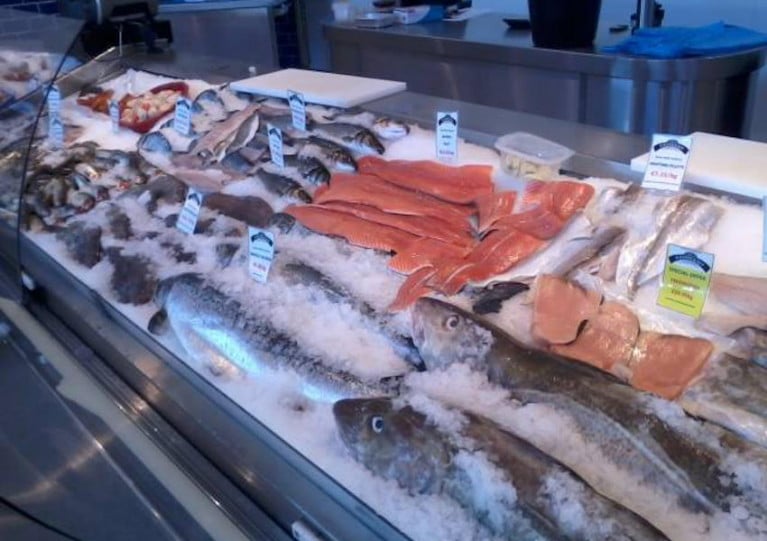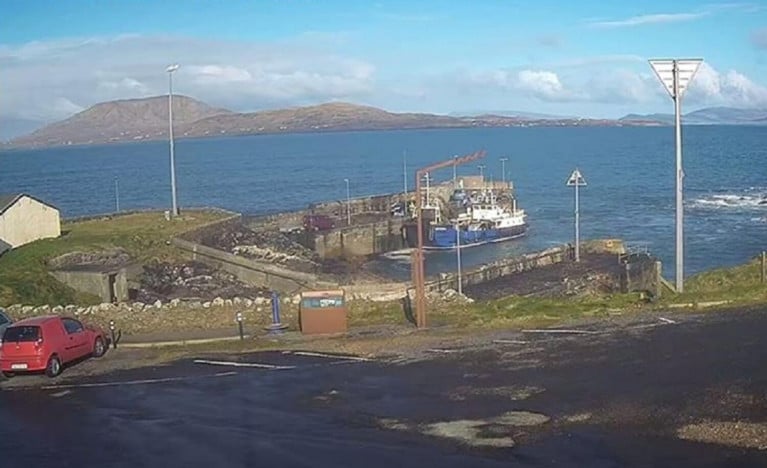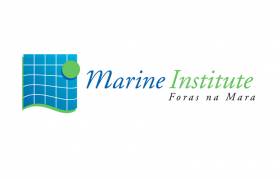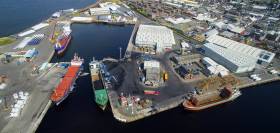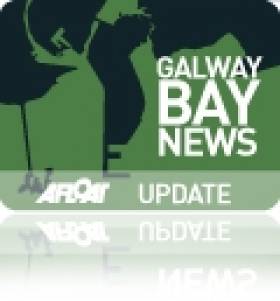Displaying items by tag: investment
Marine Marine Charlie McConalogue has announced €4.8 million in new investment by eight seafood processing companies, with his department’s European Maritime and Fisheries Fund Programme (EMFF) providing more than €1.4 million in grants.
The grants amounting to €1,408,949 are funded half-and-half by the Government and European Union and are subject to terms and conditions.
Announcing the grants, Minister McConalogue said 2020 “has been a difficult year for our seafood sector, as it has for our economy as a whole.
“So, it is heartening to see many of our leading seafood processors continue to invest to further grow their businesses. I am delighted to support these eight seafood processors in building for the future.
“Although the processing sector continues to face challenges, with the pandemic continuing to impact on world markets and uncertainties and risks around the ongoing trade negotiations with the UK, there are also many opportunities to continue to develop and prosper, as companies adapt and innovate to unlock the market opportunities that are available for quality Irish seafood products.”
The minister added that the EMFF remains “open for business” and continues to provide grants for a wide range of investments in Ireland’s seafood sector “including capital investment, innovation, business planning and marketing”.
The latest funding boost for the sector follows €3.5 million invested in six seafood processing companies in June, and a €3.4 million investment across 15 aquaculture enterprises in July.
Among the eight beneficiaries in this latest round of investment, Co Cork-based Good Fish Processing and Keohane Seafood also received grants in the June funding announcement.
Grant approvals - Seafood Processing Capital Investment Scheme 2020
|
Beneficiary |
Location |
Project |
Total Investment |
EMFF Grant |
|
Bio-marine Ingredients Ireland Ltd. |
Monaghan |
Automated Powder Bagging System and associated modifications. |
€153,691 |
€46,107 |
|
Rockabill Seafood Ltd. |
Dublin |
Air purifier and crab labelling system |
€153,281 |
€43,918 |
|
Shellfish De La Mer |
Cork |
Airflow, cooler and conveyor systems, and steam cooker |
€442,590 |
€130,723 |
|
Atlantis Seafood Wexford Ltd.
|
Wexford |
White fish filleting line & Skin Packer |
€715,685 |
€214,706 |
|
Kish Fish Company Ltd.
|
Dublin |
Blast chill, packing room, vacuum packing machine |
€30,825 |
€9,248 |
|
Good Fish Processing (Carrigaline) Ltd.
|
Cork |
White fish filleting line |
€1,511,444 |
€449,979 |
|
Keohane Seafoods Unlimited
|
Cork |
Salmon processing equipment and factory reconfiguration |
€1,712,709 |
€463,899 |
|
Breizon Ltd. |
Galway |
Reduction in energy costs through solar PV installation |
€93,799 |
€14,070 |
|
Total: |
|
€4,814,024 |
€1,372,649 |
Grant approvals – Seafood Innovation and Business Planning Scheme
|
Beneficiary |
County |
Project |
Total Investment |
EMFF Grant |
|
Keohane Seafoods Unlimited
|
Cork |
Management and business planning consultancy |
€72,600 |
€36,300 |
|
Total: |
|
|
€72,600 |
€36,300 |
Roonagh Pier is Part of €525,000 Investment in Co. Mayo
An investment of €525,000 is to be put into four piers and harbours in Co. Mayo.
The Minister for Agriculture, Food and the Marine, Michael Creed announced details of a €3.1m package to assist 10 coastal local authorities undertake and as Afloat previously reported funding to complete 58 developments of harbours repair projects and slipways owned by them.
The package, reports Connaught Telegraph, provides funding for maintenance and repair works in addition to supporting the ongoing development and enhancement of harbour facilities including some marine leisure developments.
The Mayo works announced include Roonagh Pier as Afloat also reported on where provision of a new crane and safety improvement works is to cost €150,000.
For other coastal development works and locations click here.
Merseyside: Major Investment In Twelve Quays, Birkenhead Nears Completion
On the Irish Sea a major £17m port modernisation project on Merseyside will help grow the region’s import and export capabilities significantly.
Work is been carried out by Peel Ports and Stena Line at the Twelve Quays terminal in Birkenhead. The project will see the dock expand to service next-generation RoRo (Roll-on/Roll-off) ferry vessels by investing in best-in-class facilities to reduce turnaround times, increase route capacity and improve health and safety by implementing one way traffic.
The newly developed terminal is expected to be fully operational by January 2020, ready to welcome Stena Line’s new fleet of E-Flexer ships which will utilise the Belfast-Liverpool route from spring 2020 following a multimillion pound investment into the region as part of a 25 year commitment.
David Huck, Managing Director – Group Ports from Peel Ports said: “The past two years have seen heavy investment in the infrastructure at Twelve Quays to offer enhanced berthing facilities for larger, more modern vessels, helping reduce turnaround times and open up opportunities to grow the region’s import and export offering by expanding capacity by 20%.
“It’s also allowed us to extend our long-term partnership with Stena Line as it takes the next steps in its major fleet investment programme, with freight and travel customers able to take advantage of faster and easier loading and unloading.”
Stena’s new E-Flexer ships are larger than today’s standard RoPax vessels and will provide freight capacity of 3,100 lane meters and the space to carry 120 cars and 1,000 passengers and crew. They are also highly fuel efficient to help reduce emissions, feeding in to Peel Ports’ goal of providing sustainable ports for the future.
Work carried out by Peel Ports includes a new multi-level berth to accommodate double-deck, simultaneous vehicle access to and from vessels as well as bigger berthing facilities for importers and exporters to take advantage of the port’s connectivity.
Seven renewable energy projects are benefitting from a significant funding injection following investment by the Marine Institute’s industry-led awards, as reported last month on Afloat.ie.
With the aim of driving innovation in the marine sector and accelerating renewable energy breakthroughs, funding of up to €200,000 was awarded to each of the research projects to be conducted by indigenous companies, with some including university partners.
Speaking at the funding announcement, Marine Institute chief executive Dr Peter Heffernan said: “The diversity of renewable energy projects benefiting from this funding demonstrates the innovation and expertise that we are developing in Ireland in this sector.
“From research on the impact of floating platform technology to subsea micro-piling to hybrid solar and wind energy devices, the commercial opportunities of these projects are very exciting. We are committed to supporting marine enterprises in Ireland to drive Ireland's blue economy.”
Gavin & Doherty GeoSolutions is being awarded €199,957 over two years for their research project in partnership with University College Cork that will involve a geological, geotechnical, sediment and morphodynamic assessment of designated areas of the Irish seabed.
Predictive sediment transport modelling, validated against field data, will be used to characterise future seabed changes and to quantify the risk for future potential offshore wind developments in the Irish sea.
The outcomes of the project will support developers in efficient design, installation and maintenance planning of offshore renewable assets and will reduce the risk associated with future wind farm developments in the Irish Sea.
Two projects in the area of floating energy platforms were also successful in their research funding applications.
Solar Marine Energy will receive €195,465 over two years, in partnership with UCC, to progress how solar energy can be harnessed on a floating platform to power an electrolysis unit to produce Hydrogen in an electro-fuel form while using battery storage for the release of power as and when required.
Solar Marine Energy Ltd (SME) is one of the first companies to design, engineer and manufacture cost-competitive floating solar energy products in its Floating Solar Panels, in accordance with maritime industry best practice.
To make floating wind a commercial reality, further technology innovation is necessary. The Eureka-Sea Wind project proposed by Marine Materials Ireland Ltd (MMI) will also receive €199,816 over two years to develop reliable and efficient floating wind turbine technology based on a novel concept that reduces cost and weight.
Based in Ireland and the USA, Resolute Marine Ltd has developed a successful Oscillating Wave Surge Converter (OWSC) flap system.
Now with a funding boost of €199,955, Resolute Marine will bring the OWSC from concept to robust design that is optimised for locations in the developing countries and islands targeted for commercial installations of RML’s innovative wave-powered desalination systems.
This project is set to advance the Irish wave energy industry and provide jobs for three additional highly trained experts in the fields of hydrodynamics, ocean engineering and project management.
Subsea Micropiles is being awarded €199,902 for research on the design and temporary installation of two demonstration micropile anchors.
The anchor frames will represent structures that would support the foundations of offshore wind turbines or hydrokinetic energy converters. The two anchors will be load tested both horizontally and vertically and the results compared with design predictions.
This type of micropiling technology for subsea environment provides a real and cost-effective alternative to current subsea micropiling models.
Use of robotically installed micropiles in the subsea environment represents important innovation and potential cost saving for marine renewable energy projects.
Fish farmers are actively searching for renewable energy sources to replace the diesel consumption, which causes concerns in relation to emissions and increases risk of oil spills when transporting diesel to the feed aquaculture barges.
Wind and solar generation on fish farm cages currently do not meet the power needs and can be fundamentally challenging and particularly high maintenance, when mounted so close to the ocean itself.
Wave energy, especially when coupled with the existing mooring system, is seen as a very appealing solution.
Exceedence and TfI Marine secured €199,532 in funding to research and develop a revolutionary 1kW Inline Gator system. The Inline Gator will harness the natural power of the waves by converting the motion of the fish cage into electricity thereby mitigating the need for fossil fuels.
W1DA Experience Ltd is also being awarded €198,763 in funding for the Marine EcoPowa Project in partnership with the University of Southampton and UCC.
The project aims to create a new generation of medium power (12-15KW/20-30HP) environmentally–friendly marine propulsion and energy regeneration systems that will replace what is currently termed as “outboard motors”.
The potential financial benefits to boat users in Ireland are significant, potentially costing less than half that of petrol and diesel motors over a 10-year lifetime.
The Marine Institute says it is committed to assisting industry-led development through knowledge transfer, capacity building and research to enable optimal decision making and planning to best leverage Ireland’s natural marine resources sustainably and efficiently.
This investment in marine enterprises is a key output of the Marine Institute Strategic Plan 2018-2022: Building Ocean Knowledge, Delivering Ocean Services, guided by the Government’s integrated marine plan Harnessing Our Ocean Wealth as well as the National Marine Research and Innovation Strategy 2017–2021.
Increased economic growth and job creation from small and medium-sized enterprises based in Ireland is a key component of several national strategies and regional development plans. Funding for these seven renewable research projects is being provided by the Marine Institute and the Government, co-funded under the European Regional Development Fund (ERDF).
Scottish South-West Port of Ayr Invests £2.2m In New Agri-Bulk Terminal
#ports - The Scottish south-west Port of Ayr, operated by Associated British Ports (ABP) has announced a £2.2m investment in a new state-of-the-art warehouse which will improve its customer offering.
Work on the new 4,000 sqm agribulk terminal according to ABP began in 2018 to support the region's growing agricultural sector. The new facility will be located on the west side of Griffin Dock at the port.
Commenting on the latest investment news, Andrew Harston, ABP Short Sea Ports Director, said: “We are proud to announce another major investment in our Scottish ports to ensure that we can continue to offer our customers the best infrastructure available to help their businesses grow.
“As the UK's leading company in our sector, we are committed to an extensive investment plan focusing on the Ports of Ayr and Troon and we would actively encourage Scottish businesses in need of first class port facilities in the West of Scotland to come and talk to us.”
The contract for building the warehouse has been awarded to a Scottish family-owned company, 3b construction, in line with ABP’s “buy local” strategy, which aims to support local businesses.
Stuart Cresswell, ABP’s Port Manager at Ayr and Troon, said: “Following other recent investments in warehousing, cranes and a new pilot boat, the development of another major agribulk terminal in Ayr is a huge vote of confidence in both our Scottish Ports and our local workforce.
“I strongly believe that the facilities we are developing at Ayr and Troon offer a beacon of hope for the many Scottish voices calling for a renaissance of maritime-related industry and shipping on the Clyde.”
#ports - A leading UK ports operator, Associated British Ports (ABP) recently announced an additional investment to boost facilities at its Port of Hull, bringing the group’s total investment to £250 million since the EU referendum in 2016.
This programme of investment demonstrates the group’s commitment to keeping Britain trading with Europe and the rest of the world after Brexit.
ABP is actively working to support businesses anxious about the event of a No-Deal Brexit and the potential severe disruption this may cause at the Port of Dover.
Container and ferry facilities at ABP on the Humber are capable of helping businesses bypass such disruption, providing regular and reliable links to Europe. Over 70 sailings every week connect the Humber to a number of destinations including Belgium, the Netherlands, Denmark and Poland.
Investment highlights include: £50 million to boost capacity at its container terminals at ABP’s ports of Hull and Immingham; £65 million to help ensure the future of the steel industry on the river Humber; £55 million to enhance the automotive and cruise offering in the Port of Southampton. In addition to a range of other investments throughout its network of 21 ports across England, Scotland and Wales.
According to ABP which has an important component role in the UK’s trading infrastructure, the group handles almost £150 billion of UK trade across its port network, contributing around £7.5 billion to the UK economy. In addition to supporting almost 120,000 jobs across its supply chains.
Investment of €50m in Foynes Port
#ShannonEstuary - This month work will begin on the first element of a major restructuring of the port of Foynes in Co Limerick.
According to RTE News, it is part of a €50m investment in transforming the port into one of the biggest bulk harbours in Europe.
Shannon Foynes Port Company will spend €12m on transforming the existing East Jetty area, and reclaiming a 3.45 acre section of the port to create a bigger foreshore area of activity and enable improved bulk discharge times.
The expansion of the port will add an additional 35,000 square metres of additional berthage and create more open quay storage at the port.
It will enable the company to accommodate larger container cargo ships, enabling ships of 40,000 tonne capacity to berth at the new port.
For more on the development of the mid-west port, click here.
#Angling - Inland Fisheries Ireland (IFI) is looking for public feedback via an online survey on its current funding programmes, having awarded over €3.4 million to angling projects and fisheries initiatives in communities nationwide over the past five years.
Current funding channels include the Salmon Conservation Fund and the Midlands Fisheries Fund, which see IFI redistribute income gained from permits and licenses, as well as IFI’s Sponsorship Programme.
IFI is now looking to consult with previous recipients of funding alongside interested parties and potential applicants, on whether the funding programmes are meeting requirements and if there are any changes which could be made to improve them.
Sean Kyne TD, Minister of State with responsibility for the Inland fisheries sector, encouraged stakeholders to take part in the online survey.
“The programmes ensure that stakeholders are facilitated and partnered to assist in the strategic development of fisheries and angling developments,” he said, adding that “the angling sector is worth €836 million to Ireland’s economy annually, supporting upwards of 11,000 jobs.”
This month IFI will invite applications for funding for angling access improvement works. These projects should contribute to the delivery of an accessible and sustainable world class inland fisheries and sea angling resource and will form part of the National Strategy for Angling Development.
While this fund will be limited to ‘shovel ready’ projects on the river bank, further funding opportunities for more complex capital projects are likely early in 2017.
The funding survey should take less than five minutes to complete with all participants entered into a draw to win one of three €50 tackle shop vouchers. The survey is open to angling clubs, commercial fishermen, fishery promoters, community and local development groups as well as private individuals.
To find out more information about IFI’s funding programmes and to take the short funding survey, visit www.fisheriesireland.ie/fundingsurvey.
The survey will be live on the IFI website until Tuesday 8 November.
#GALWAY HARBOUR - Galway Harbour management are looking forward to the prospect of Chinese investment in the port's redevelopment plans, the Galway Independent reports.
“Chinese investors clearly recognise not only the massive potential of ocean tourism, but also the specific potential for Galway as a destination port for cruise liners," said Fine Gael TD Brian Walsh, referring to discussions between the Government and Chinese officials in Beijing last week.
As previously reported on Afloat.ie, Galway Bay can expect to welcome at least nine cruise visits thus year, with the first scheduled to arrive late next month.
Walsh added: "Galway is an incredibly attractive city, and if we can make it accessible to the major players in the cruise-line market, the impact on the local economy would be immense.”
Galway Harbour Company CEO Eamon Bradshaw said that the port project had "illicited quite a bit of interest" when the company presented at the recent Chinese-Ireland Relations conference at NUI Galway.
"We’re confident that we do have a lot to offer and we are confident that an investor will come on board."
The Galway Independent has more on the story HERE.
Minister Launches Consultation on Harnessing Ireland's Ocean Wealth
#NEWS UPDATE - Minister for the Marine Simon Coveney has launched a public consultation process on harnessing the potential of Ireland's vast marine resources.
Our Ocean Wealth is calling for input into how Ireland can best capitalise on the trillion-euro global market for marine products and services, from seafood and tourism to shipping, oil and gas, renewable ocean energy and marine science.
Launching the consultation, Minister Coveney said: "We need to change the way we in Ireland think about the sea and look for new opportunities to harness the potential of our 220-million-acre marine resource.
"This government is determined to generate the momentum to drive forward a new era of sustainable economic development across the maritime sectors - we must avail of these opportunities to assist in our recovery. We want your help to shape our plan, to shape our future and to assist in our drive towards our nation's economic recovery."
The consultation process is a step towards developing an Integrated Marine Plan for Ireland intended to grow the percentage of GDP generated by the country's marine resource, which covers an area 10 times the size of Ireland's land mass.
The minister added: "We need an Integrated Marine Plan to harness our ocean wealth, get the environment right for investment and use the potential of our marine economy to create jobs in a sustainable manner."
The consultation phase will be open until 31 March with an aim to publish the Integrated Marine Plan during the summer. For more details visit www.ouroceanwealth.ie.



























